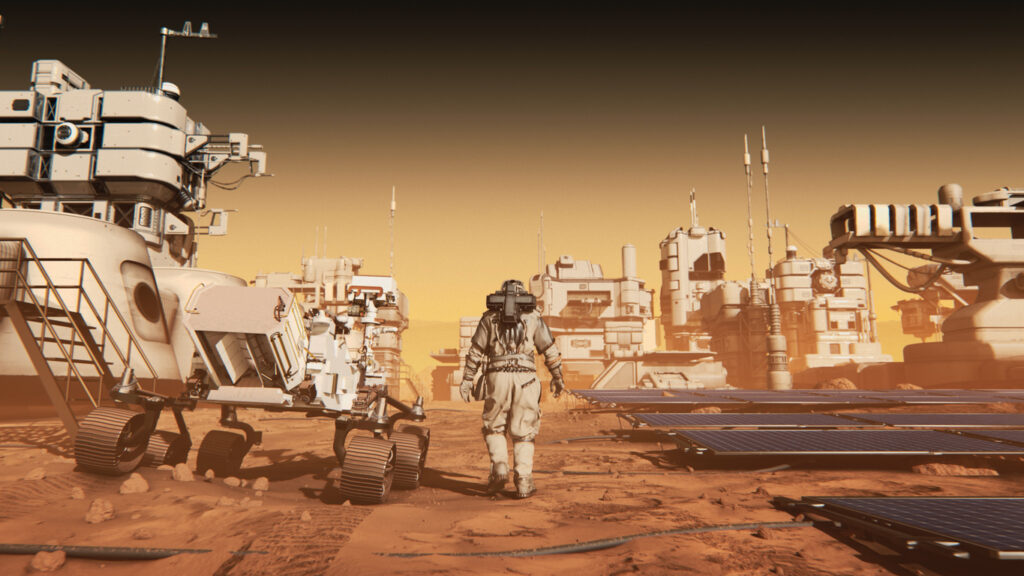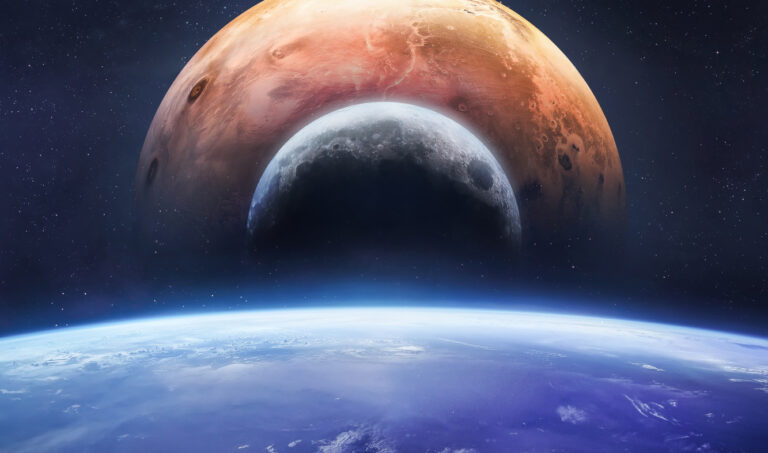The Next Chapter of Humanity Is Unwritten—But Leadership Holds the Pen
Have you ever found yourself deep in conversation about the future of humanity—not just where we’re headed, but who is leading us there?
That was exactly the discussion I had recently. And with all the buzz surrounding space exploration, one question stood out:
If Mars is the next great frontier, who should lead us there?
Because let’s be honest—getting to Mars is just one challenge. The bigger question is, under whose leadership will the greatest value be created? Who will ensure the journey benefits the world, not just those who set foot on the Red Planet?
Two distinct leadership styles emerge: Elon Musk and Richard Branson.
- Musk is known for relentless speed, extreme pressure, and results at all costs.
- Branson embraces curiosity, collaboration, and making exploration an experience.
So, if given the chance, who would you follow?
Elon Musk: The Visionary Disruptor
Elon Musk operates on a different wavelength. His ability to see the big picture and challenge the impossible has led to groundbreaking advancements—from reusable rockets to the Starship program designed for Mars colonisation.
With SpaceX, Starship, and Starlink, Musk isn’t just building a way to get to Mars—he’s constructing the infrastructure for an interplanetary future. His approach isn’t about slow, calculated progress—it’s about pushing boundaries at breakneck speed, forcing innovation at a pace the world has never seen before.
Musk’s leadership thrives on high-pressure execution, disruptive innovation, and pushing limits far beyond conventional thinking. But it also comes with intensity, high demands, and a relentless pace.

Strengths of Musk’s Approach:
🚀 Unparalleled ambition – Moves fast, takes big risks, and redefines industries.
🔬 Deep technical expertise – Personally involved in engineering decisions, driving innovation.
⚡ Disruptor mentality – Forces progress at an accelerated pace.
Potential Pitfalls of Musk’s Approach:
🔥 High-pressure culture – Demands extreme work ethic, often leading to burnout.
🏆 Win-at-all-costs mindset – Prioritises results over employee well-being.
🎭 Polarising leadership – Commands respect but alienates those who don’t align with his intensity.
Would Musk’s Mars be a thriving human colony or a high-stakes survival experiment?
Richard Branson: The Visionary Connector

Richard Branson sees space as an experience to be shared, not just a mission to be completed. His leadership is built on collaboration, joy, and making exploration accessible to all.
With Virgin Galactic and Virgin Orbit, Branson is pioneering commercial spaceflight, bringing the dream of space travel closer to reality for the everyday person. His vision extends beyond just sending people to space—it’s about creating an industry where space travel, scientific research, and innovation fuel progress for generations to come.
Branson’s leadership thrives on empowering people, embracing adventure, and ensuring space remains an open frontier rather than an exclusive race. His approach is about building an inclusive and sustainable future, where exploration doesn’t just serve the few but creates new possibilities for all.
Strengths of Branson’s Approach:
🤝 People-centred leadership – Fosters collaboration, empowerment, and fun.
🌍 Big-picture innovator – Sees space as part of a larger journey for humanity.
📈 Sustainable impact – Ensures technological advancements benefit multiple sectors.
Potential Pitfalls of Branson’s Approach:
🐢 Less aggressive timeline – Moves at a more calculated pace.
🎈 Experience over speed – Prioritises making space enjoyable rather than urgently habitable.
🌎 Exploration over colonisation – More focused on access than settlement.
Would Branson’s Mars be a thriving, collaborative civilisation, or would it struggle to become self-sustaining in time?
The Leadership Choice: Who Would You Trust to Lead?
If you had the opportunity to be part of the first wave of pioneers, who would you trust to lead the mission?
- Would you follow Musk, knowing his leadership would push the limits of innovation—but demand unwavering sacrifice?
- Would you follow Branson, knowing his leadership would prioritise the human experience—but take a steadier path?
The Peter Pan vs. Hook Factor: A Playful Perspective
During our conversation, an interesting comparison emerged. Richard Branson’s playful nature, adventurous spirit, and lifelong love of flight naturally reminded us of Peter Pan—forever chasing new experiences and inviting others to share in the magic of exploration.
Almost instinctively, Elon Musk took on the role of Captain Hook—a brilliant strategist and visionary, relentlessly pushing forward with disruptive innovations. Unlike Hook, however, Musk isn’t chasing Branson—he’s charting his own course at full speed, determined to forge the future on his own terms.

Both leaders are pioneers, but their approaches couldn’t be more different:
- Branson embraces freedom, creativity, and bringing people together.
- Musk thrives on discipline, control, and an unrelenting drive to push boundaries.
A Different Leadership Lens:
- Branson as Peter Pan – Playful, adventurous, and focused on the joy of the journey.
- Musk as Captain Hook – Brilliant but intensely focused on control and competition.
One leader embraces exploration and shared experiences, while the other is obsessed with achieving the mission, no matter the cost. But in the end, who truly thrives: the one who enjoys the journey, or the one consumed by conquest?
The Frontier Awaits—But Who Should Lead It?
The final frontier isn’t just about reaching Mars—it’s about who we trust to take us there and how they lead the way.
🔥 Would you thrive under Musk’s high-stakes, high-speed mission—where risk is the price of progress, and only the most relentless will keep up?
🌍 Or would you choose Branson’s people-first voyage—where exploration is about shared experiences, and the journey is just as important as the destination?
But more than that—are we even asking the right leadership questions?
💡 Are we focused too much on ‘what’ needs to be done, without enough thought on ‘how’ it should be led?
⚖️ Could the difference between success and failure lie not in the mission itself, but in the way leadership is executed?
🚀 And if humanity’s next great leap depends on leadership—are we backing the right approach?
The future isn’t just shaped by visionaries. It’s shaped by the choices we make about who leads us and how they do it.
🚀 The next frontier won’t be won by technology alone—it will be shaped by those bold enough to lead it. The biggest risks—and the greatest opportunities—aren’t just in space. They’re in leadership.
🔥 Who has the vision, courage, and strategy to take us forward? And more importantly—who are we willing to follow?
The future won’t wait, and neither should this conversation. Who would you trust to lead humanity’s greatest leap—and why?
The real challenge isn’t just about Mars. It’s about the kind of leadership we need—here and now.
Time to get real. Sound off below. 👇🔥




